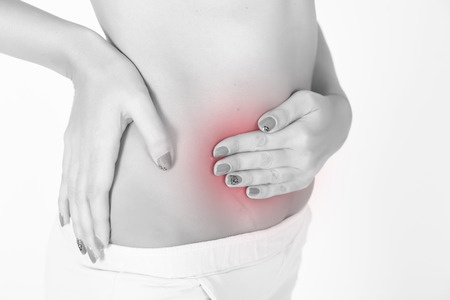 Menstrual cramps are caused by uterine contractions. Common menstrual cramps typically occur immediately before or during a woman’s monthly menstrual period.
Menstrual cramps are caused by uterine contractions. Common menstrual cramps typically occur immediately before or during a woman’s monthly menstrual period.What Causes Menstrual Cramps?
Dysmenorrhea, the medical term for painful menstruation, is categorized as primary or secondary. Secondary dysmenorrhea is pain due to a disorder in the reproductive system and primary dysmenorrhea is the name for common menstrual cramps that many women experience with their monthly menstrual cycle.
Menstrual cramps are painful cramps triggered by the production of natural chemicals called prostaglandins. These chemicals are made in the lining of the uterus and increase each month right before menstruation begins. The rise in the prostaglandin level causes cramps to occur. As the uterine lining is shed, prostaglandin levels begin to drop and the cramps lessen.
Symptoms of Menstrual Cramps
Many young women start to experience menstrual cramps soon after they begin having their menstrual period. Menstrual cramps often decrease with age and may improve following childbirth.
Common complaints accompanying menstrual cramps include:
- Pressure or pain in the lower abdomen
- Pain in the low back, hips or inner thighs
- Loose stools
- Nausea or vomiting
Diagnosing Menstrual Cramps
To determine whether your menstrual cramps are related to primary or secondary dysmenorrhea, your OBGYN will review your medical history, symptoms and menstrual cycle.
A pelvic exam may be performed and your gynecologist may also recommend an ultrasound or laparoscopy be performed to pinpoint the likely source of your menstrual pain.
Treatment of Menstrual Cramps
Exercise, adequate sleep and relaxation techniques may help reduce menstrual cramps. If lifestyle measures such as these don’t improve symptoms, medication may be needed.
Your gynecologist may prescribe birth control pills or other hormonal medications to reduce the severity and frequency of menstrual cramps.
Non-steroidal anti-inflammatory drugs (NSAIDs) such as Ibuprofen, can reduce prostaglandin levels and reduce the intensity of cramps. NSAIDs should be started as soon as your period begins and continues for only 1 to 2 days. Talk with your gynecologist before starting NSAIDs, since the medications are not appropriate for women with bleeding disorders, asthma, aspirin allergy, liver damage, stomach disorders or ulcers.
